You can have a gorgeous garden, even with free range chickens! Learn how to make a DIY garden cloche, plus other great ideas to protect your garden plants and keep both your garden and your chickens happy!
Creating a garden that both you and your chickens can enjoy tends to be a challenge from time to time! Spring can be especially problematic, due to the tiny fragile seedlings that are popping up.

My free-range velociraptors (err… chickens) rampage my garden several times a day, leaving a path of destruction behind!
During most seasons, I welcome their scratching and bug scavenging. But when I plant a bunch of seeds and tender plant starts, those chickens better leave my garden alone!
But of course, they don’t. Because they’re chickens. And chickens are kind of jerks. If there’s a tiny baby plant that I just lovingly planted, you can bet that it will be the first thing they destroy!
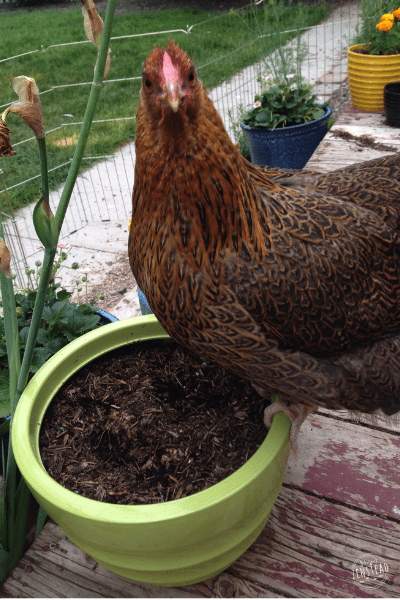
Yes, I could fence off the garden or keep them locked in their run, but chickens provide a lot of benefits around our homestead which is why I enjoy letting them free-range.
Through the years, we’ve learned a lot about how to garden with – or maybe despite – chickens! I’ve lost a couple plants and a lot of seeds due to their scratching, but I’ve finally found a few ways to keep both the chickens and the garden happy using wire fencing and garden cloches.

**This post contains affiliate links. We may receive a commission at no expense to you if you choose to sign up for services using these links. See our full affiliate disclosure here. Thanks for helping support this blog! **
What Does a Garden Cloche Do?
Garden cloches are coverings that protect plants and they are amazing! I use them to protect plants that I direct seed individually (rather than in rows), like cabbage and broccoli.
A garden cloche is also a great way to protect young plants that you transplant into your garden while they take root. You can also shape them to fit over pots to protect potted flowers and plants from chickens and wild birds!

After looking at the price for commercially-made garden cloches, I decided to construct my own to save money. Luckily, it’s incredibly easy to make a DIY cloche using chicken wire. Rolls of chicken wire are very affordable, so you can make a homemade cloche for a fraction of the price of store-bought ones!
How Do You Make a Garden Cloche?
To make your own DIY Garden Cloche, you will need:
- Chicken wire (I bought a 3 ft x 25 ft roll for under $20 at Lowes)
- Pliers/Wire Cutters
- Landscape Fabric Stakes or Heavy Gauge Wire
Directions:
Step 1: Start by rolling out a section of your chicken wire on a flat surface.
Step 2: Cut the wire using your wire cutters. You can make the cloches as big or small as you need. I made mine by cutting the wire into 2.5 ft x 1.5 ft squares.

Step 3: Form the wire into a cylinder shape.

Step 4: Overlap the cut edges so that they are offset (as seen in the picture).

Step 5: Twist the loose ends of the cut wire to secure them together (as seen below).
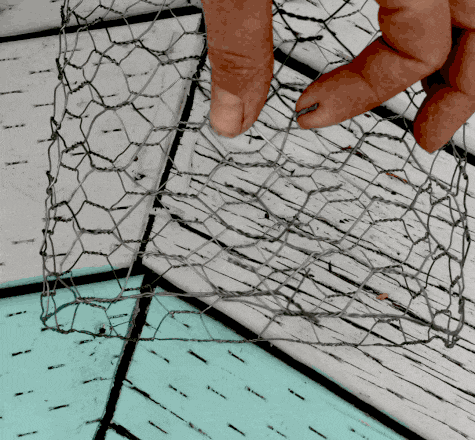
Step 6: Once the wire ends are twisted together, decide which of the open ends will be the top and which will be the bottom. I prefer to use the solid wire side as the bottom.

Step 7: On the top, cut 4-5 vertical slits into the wire. The slits should be about 1/4 to 1/3 of the length of the wire cylinder.
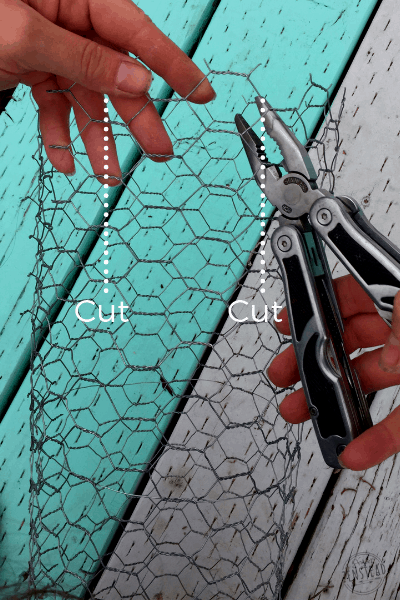
Step 8: Fold the cut slits down so that they overlap and form the top of the cloche. If needed, you can twist the loose ends of the cut wire over the other wire so that the wire flaps stay in place.

Step 9: Place the finished cloche over your plant or seeds and secure it by using 2-3 landscape fabric stakes. Alternatively, you can use a piece of heavy gauge wire, folded in half, as a stake.

More Ways to Protect Your Garden from Chickens
You could also install garden fencing. We use a couple rolls of welded wire garden fence (3ft x 50ft) to line our raised garden beds.
We roll them up in the fall so that the chickens can scratch and work the compost into the garden beds over the off-season. Then we roll them back out every Spring when we begin planting.

We actually cut the fencing in half lengthwise so the fence is 1.5 feet tall (in addition to the 2-ft raised bed). In hindsight, I wouldn’t do that again. It made the wire go much farther, which was great. And at the time, we only had adorable little bantam chickens who couldn’t jump it.
But over the last few years, we added some athletic full-sized chickens to our flock. And that little fence isn’t stopping them anymore! So the fence does still help discourage them somewhat, but I wish I had left it taller.
DIY Garden Fence Ideas
The best way that I’ve found to protect sown seeds and sprouting plants is to cover them with sections of wire fence. This works especially well for seeds/plants that are sown in rows, like radishes and corn. The fencing panels will help protect them until they are well-rooted, at which time you can remove the fencing.

This year, we re-did a lot of fencing when we changed the layout of our goat pasture. As a result, we had a big roll of salvaged welded wire fencing that was bent and broken.
I cut the fencing into smaller sections to fit into the garden spaces where I planted seeds. The sections were like large garden cloches.
I bent the fencing just a bit to give it a curve before I laid it over the garden soil. The curved shape helps discourage the chickens from walking on it and it also gives the plants some extra growing space. I plan to save all these panels and reuse them each year in my garden.

I want to hear your best tips and tricks for gardening with free range chickens! Share with us in the comments!
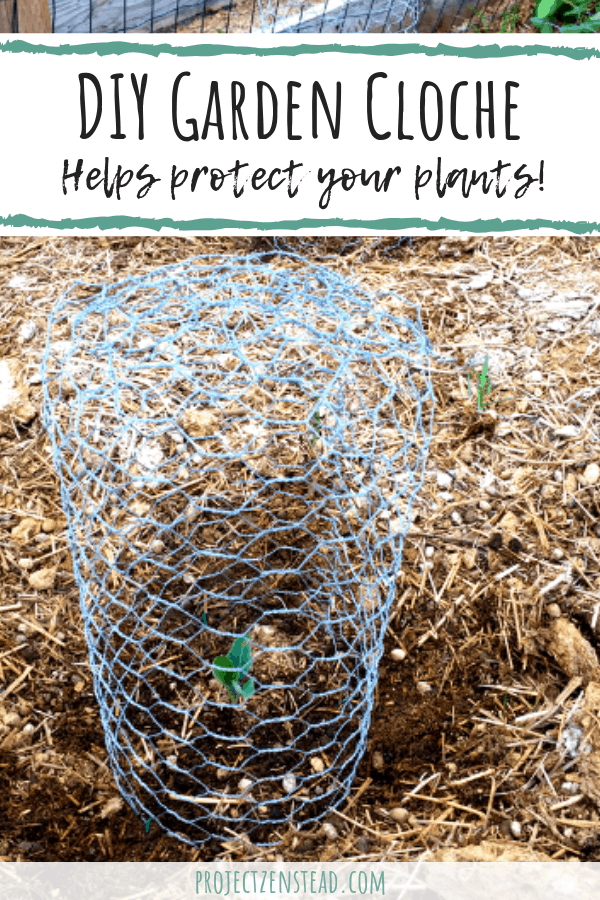
Pin this post for later!
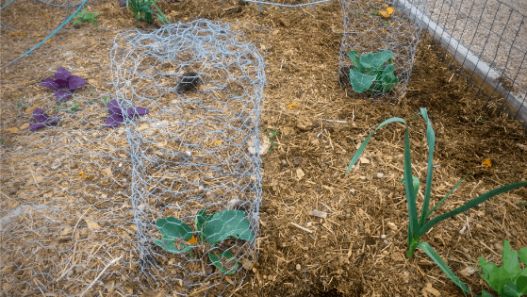
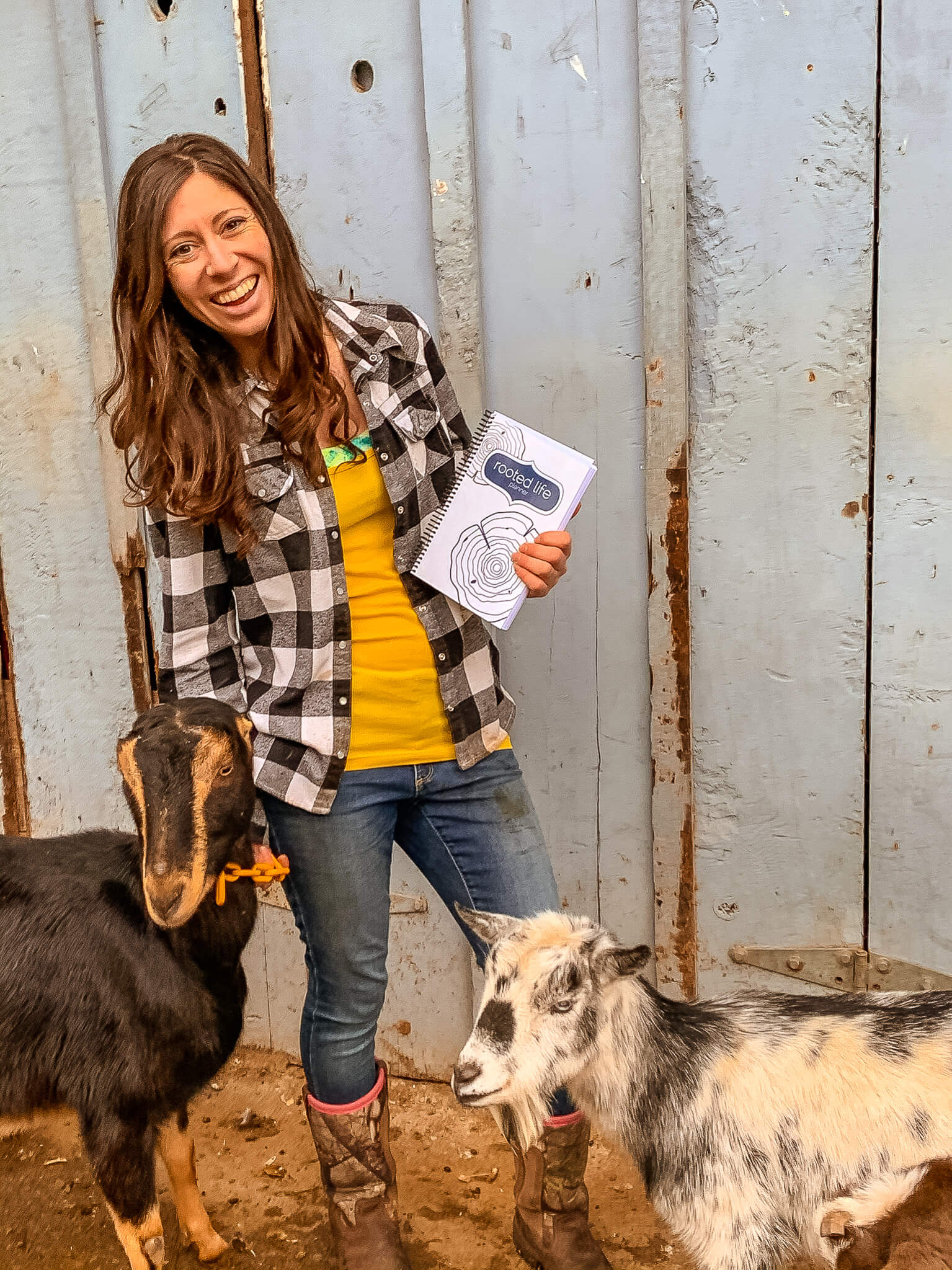


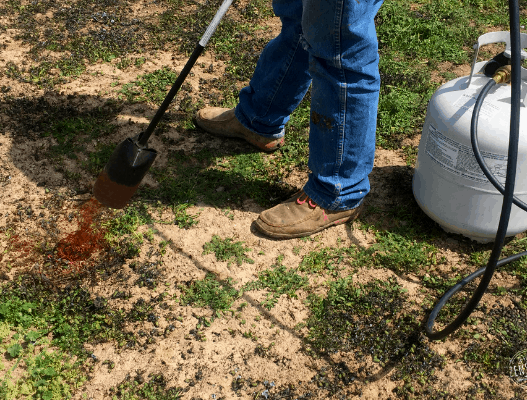
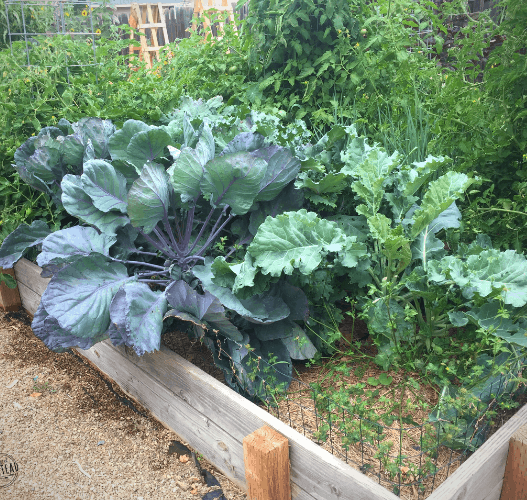
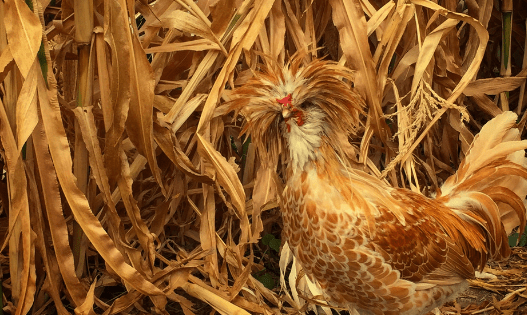
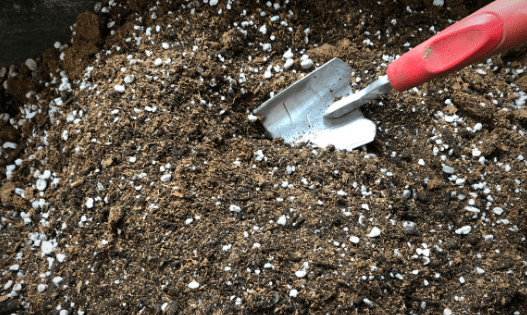


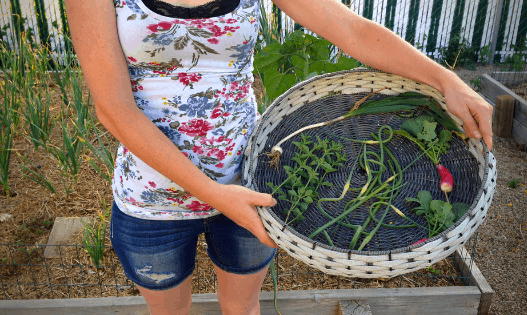
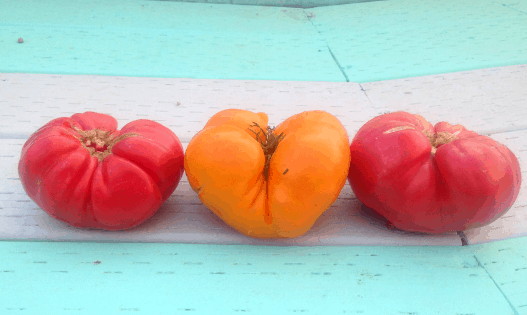
Perfect timing! My issue is rabbits, not chickens. I was wondering why my cosmos seeds weren’t sprouting in a new flower bed I just put in. I don’t have problems with rabbits in my raised beds, but never even thought about guarding my flowers. These cloches will help!
Yay – they should work really well for rabbits. We have a free range pet bunny and I have to do the same thing with certain things that I don’t want her nibbling! There’s always something keeping us on our toes while gardening!
So many great tips in here! Thank you for sharing. Adding to my chicken info for the future!
Bwahaha! Chickens ARE kind of jerks! This is a great idea and simple to do. They’re opportunists, after all. If there’s something easier to eat, they will.
They really are! Good thing they are fluffy and adorable! I can’t stay mad at them! Plus, it helps that they make my breakfast! ?
happy chickens, smart idea. Well done.
Every time I read one of your chicken posts, I am tempted to get chickens again!! Man do I miss those eggs!! 🙂
Here in Arizona, our backyard garden eaters are wild rabbits and Carrot Tailed Chuckwalla (yeah, look that one up, you’ll be very surprised). I shared your idea with our local Happy Planting Garden Club and the reception was glorious. Thank you for this economical and ingenious solution. Shout out to Carol Prelog in our group for sharing her Chuckwalla encounter. Too bad I can’t attach her photo of the beast I’ve dubbed Godzilla.
Okay I looked it up and that was not at all what I was expecting! ? For some reason I was expecting a gopher type of animal! Boy was I wrong! Those things are crazy!! I think I will stick with the mini dinosaurs that terrorize my garden… at least they give me eggs! I hope the cloches help! They’ve certainly helped with the bunnies and quail that we’ve had! (Also – Happy Planting Garden Club is the cutest name ever!)
I wish I had read this last night! Yesterday, I found that deer had eaten my new cabbage heads and the rabbits had gotten into the broccoli and cauliflower so I laid awake for several hours at 3am trying to figure out a plan for extra fencing, etc. About 5:30 this morning, I started thinking how I could make my own cloches – you always see them in beautiful garden shoots and they sell for $25+ each. I got the whole plan in my head for using chicken wire and fabric staples. Then got up and looked up DIY cloches and there you were! Well, now I know that they’ll work. Thanks. 🙂
Oh nooooo! There is nothing more sad than seeing all your hard work eaten by critters!? I hope these keep the pesky deer and bunnies away! I need to make some bigger cloches this weekend actually. I started a bunch of dahlias and kept the cloches on them until they were so big that they were all crammed in. I took the cloches off and in one day the chickens dug out about half of them!??♀️ It doesn’t help that I planted them in one of their favorite dust bath spots. So I either need bigger cloches or maybe I will just move them, give up the fight and let the chickens have the flower bed for dust baths! There’s always something to keep life interesting, right?!
Gardening is really fun and great for the body as well.
These are the best instructions I found online! The little visuals in the step by step are so helpful for this non-crafty-person.
@Karen L, Thank you so much for the compliment! I’m glad the instructions and visuals were helpful for you.